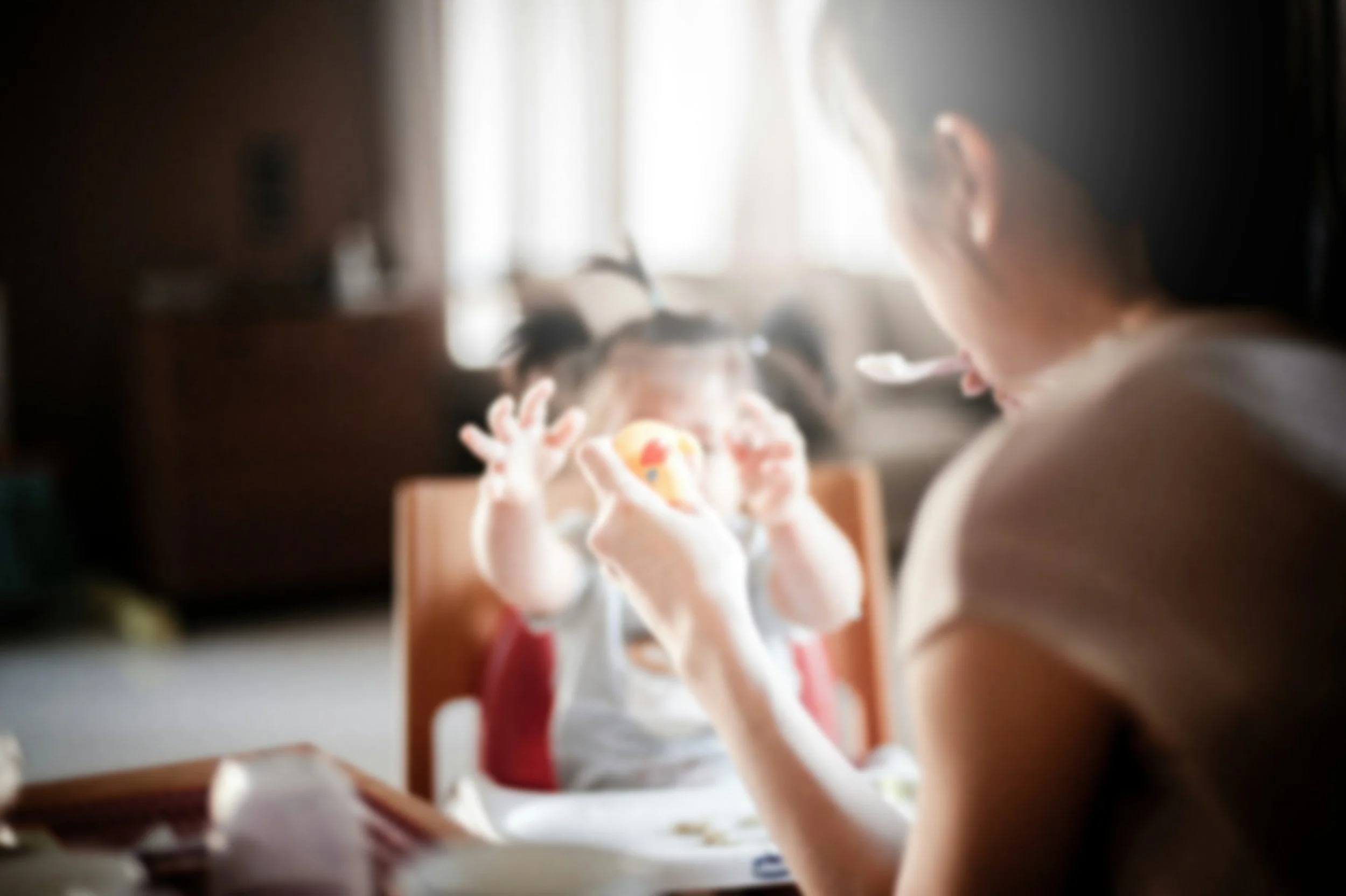Social Media and Maternal Mental Health
Unrealistic Expectations and the Hidden Reality Behind “Perfect” Parenting Content.
It’s 11 PM. The baby’s finally asleep. You’re exhausted, bleary-eyed, barely holding your phone upright—but still, you scroll through Instagram or TikTok before bed.
A momfluencer pops up on your feed, glowing with energy and a full face of makeup. In her video, she’s prepping heart-shaped bento box lunches for her four kids while reciting affirmations in a spotless, sun-drenched kitchen. Her toddler is quietly watercoloring (on paper!), classical music playing softly in the background.
You glance around your own living room. There’s a pile of laundry on the couch, snack wrappers on the floor, and you’re pretty sure one of the kids colored on the wall earlier. “Why doesn’t my life look like that?” “Am I doing something wrong?”
If you’ve ever felt that pang of comparison—you’re not alone.
Not all parenting content online is polished perfection. More and more creators are intentionally sharing the messy, unfiltered moments—the meltdowns, the guilt, the chaos. And that kind of content can feel like a lifeline. Finding moms who are open about their struggles can be validating, comforting, and incredibly humanizing.
But even the most relatable content only shows a moment in someone’s life—not the whole picture. It doesn’t capture everything that happens off-camera, between posts, or on the harder days that don’t make it online. While seeking connection and support can be incredibly meaningful, it’s still important to be mindful of comparison—especially with influencer content. If your reality doesn’t look like theirs, it doesn’t mean you’re doing it wrong. It just means you're doing it your way—and that’s okay.
“If your reality doesn’t look like theirs, it doesn’t mean you’re doing it wrong. It just means you’re doing it your way—and that’s okay.”
That urge to compare? It’s not just emotionally draining—it’s also been studied.
Several studies have explored the impact of social media on maternal mental health. One 2023 review published in Issues in Mental Health Nursing found that social comparisons, particularly after exposure to idealized portrayals of motherhood, were linked to decreased well-being in moms. And the pressure is everywhere. The sheer volume of momfluencer content—videos, routines, sponsored posts—can make it feel like everyone has it more together than you do. While some accounts are uplifting and honest, others showcase a version of motherhood that’s deeply aspirational—and often unattainable.
Why? Because for many creators, this is a job. A brand. A production. The matching outfits, aesthetic homes, calm routines—they’re often staged, edited, and supported by lighting, help, or even entire teams. Even the ways in which they choose to share the not-so-great moments of motherhood may also be edited. There’s nothing wrong with it—but it’s important to remember that what you are watching is a carefully curated version of their lives.
As journalist Jessica Grose explored in her 2022 New York Times piece, “Why Are Momfluencers So Good at Worming Their Way Into Your Brain?", the line between performance and reality is increasingly blurred. These curated portrayals are crafted to entertain and engage—and in many cases, to sell. But to a tired, overwhelmed mom on the couch at the end of a long day, they can quietly chip away at self-esteem.
Moms today are under more pressure than ever. They’re expected to "have it all"—a career, well-behaved kids, a clean house, and meaningful relationships - and to make it all look effortless. Then add in social media, where it seems like everyone else is doing it flawlessly. The result: self-doubt, guilt, and burnout.
In my work as a reproductive psychiatrist, I’ve seen this play out time and time again. Mothers who are loving, capable, and doing their best—but feel like they’re failing. And many don’t realize that a major source of that pressure is quietly coming from the palm of their hand.
Here’s what I want every mom to know: Motherhood isn’t supposed to be perfect. It’s not supposed to be aesthetic. It’s supposed to be human. So the next time you see a mom online who seems to have it all together, remember—you’re only seeing what she chooses to share. And while her content might be inspiring, it doesn’t have to be a standard you hold yourself to.
That said, completely unplugging from social media isn’t always realistic. For many moms, it can be a source of support, information, and even moments of joy. The key is learning how to use it in a way that protects your mental health instead of harming it.
Here are a few simple, mindful ways to stay connected without falling into the comparison trap:
Be Intentional With Your Time. Instead of scrolling out of habit, try setting small boundaries such as limiting app use during parts of the day such as during family meals, bedtime routines, or when you’re trying to unwind.
Curate Your Feed With Care. Follow accounts that leave you feeling seen and supported, not ones that trigger guilt or comparison. If you notice an account consistently brings you down, mute or unfollow. Your feed should work for you.
Take a Gentle Pause. Even a short break, 24 hours or a weekend off from social media, can help you reset emotionally. Notice how you feel without the constant influx of other people’s lives. If it feels good, consider building in regular breaks.
Choose Connection Over Comparison. Social media can be a powerful source of validation when it’s used to connect meaningfully. If you’re reaching out to other moms, reading honest reflections, or sharing your own struggles, that’s a form of care—not just content.


